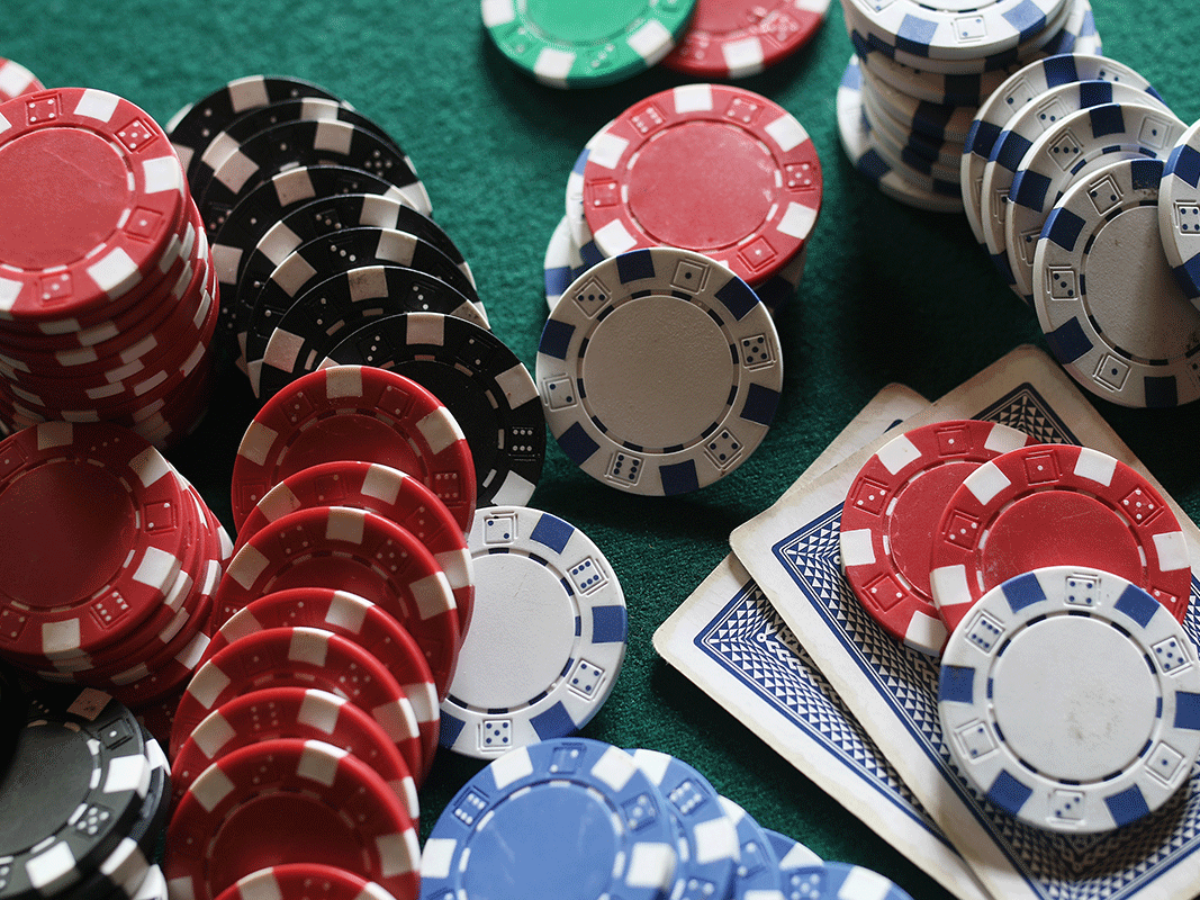How To Separate Poker Chips
4/9/2022 admin
How To Separate Poker Chips Rating: 9,2/10 9064 reviews
If you are setting up a poker home game and want to know what each chip is worth and how many to give to each person, you have come to the right place. I have been a poker tournament player for over 10 years and can give you
Another alternative with so many players is to simply form two tables and organize two separate games. Dealer's Choice. When the Poker session is Dealer's Choice, each dealer has the privilege of naming the form of Poker to be played and to designate the ante, wild cards (if any), and the maximum limit of chips that can be wagered during each. Start with two piles of poker chips, with four chips in each pile. Place the piles side by side and put your pinky and ring finger on the right pile, while your thumb and index finger catch hold of.
How Many “Chips” Do You Need to Play Poker? For most poker games you typically need about 500 poker chips for the game. However, games with 6 players or less can usually get by on 300. This sounds like a lot, but it’s really not since your house or office typically will have a variety of items which can act as a poker chip substitute. Big Blind Products 100 Piece Premium Poker Chip Set Set for Upscale Vegas-Style Poker Nights - Durable, Poker Chips with Denominations, Casino Weight Chips with Gift Box - Casino Chips. 4.7 out of 5 stars 311. FREE Shipping on orders over $25 shipped by Amazon.
What are the poker chip values for home games?
- White or Gray – $1
- Red – $5
- Blue – $10
- Green – $25
- Black – $100
- Purple – $500
- Yellow – $1,000
- Pink – $5,000
- Orange- $10,000
While these are the traditional values assigned for poker chips, what denominations you use can be tailored for whatever type of game you happen to be playing. The rest of this article will cover everything you need to know about optimizing your poker home game so that your friends will think you are a pro.
What Values for Common Chip Sets?
The traditional chip values for each color were established by casinos to represent real money. In other words, a blue chip at a casino can be traded in for a $10 bill
Nowadays, this system doesn’t make a whole lot of sense for home games unless you happen to be playing a high stakes cash game
Most people either play cash games for small amounts of money, where the highest denomination is something like $5. Or, they play a tournament.
Setting Up Cash For Games
In cash games, your chips count as actual money and there is no prize pool. If you run out of chips you are out of the game unless you reload. This format is the easiest to organize and play, since you don’t have to worry about a tournament clock or rising blind levels.
Cash Game Chip Values
If you are using your poker chips to play a home cash game, I recommend just following the traditional rules. White is $1, red is $5, blue is $10, green is $25
If you want to play higher stakes, say $5/$10 or $10/$20, you will need black and possibly purple chips. Or, you can just convert the white chips to $100 and red to $500 if your set does not contain black and purple.
How Many Poker Chips Do We Need for Cash Games?
A good rule of thumbs is to figure that you need at least 50 chips for every person in the game
If you have 6 or more players, you will definitely want to invest in a 500 piece set, like this inexpensive one (Click to see Amazon Listing).
If you want to customize the denominations of an individual poker chipset, you will likely need to get a higher-end brand, like my absolute favorite chipset.
How Many Poker Chips per Person? What Do They Start With?
In cash games, poker players may buy in for as much as they want. If you want to set a minimum or a maximum, that is fine. A 20 big blind(bb) minimum and a 100bb maximum are common.
Here are the chip distributions for common stack buy-in sizes:
$1.00/$2.00 Blinds
$2.00/$5.00 Blinds
$5.00/$10.00 Blinds
$10.00/$25.00 Blinds

What If We Want to Play Smaller Stakes?
If you want to play a small friendly game, feel free to play as low as you want. For example, you could make chips worth the following:
- White – $0.10
- Red – $0.25
- Blue – $1.00
Here is a good distribution for playing .10/.25 blinds. For a friendly game, I recommend playing with 40 big blind stacks of $10 each:
$0.10/$0.25 Blinds
By choosing to play 40bb each, no one would be likely to lose more than $50 in a typical night. I included the 100bb distribution if you prefer deeper stacked play.
Tournament Setup & Starting Stack Distributions

Tournaments are actually a fairly recent invention that has grown immensely in popularity since Chris Moneymaker won the World Series of Poker in 2003. Now, it’s the most common poker format played in home games.
The great thing about tournaments is that it’s easy to limit the amount you can lose in a session. If it’s a $10 buy-in that’s all you can lose for the events. Just throw your money in a hat and play.
Tournaments do, however, take a bit more organization and
- Setup and decide on the prizes
- Manage the rising blind levels
- “Color up” the chips as the blinds go up
Poker Tournament Chip Values
If you decide to play a poker tournament and want to be able to play more than 5 or 6 blind levels, then you will need at least 4 chip colors. Most chip sets now come with at least red, white, green, and black.
Here is a simple and flexible chip value system commonly used in live poker tournaments:
- Red – $25
- White – $100
- Green – $500
- Black – $1,000
- Pink – $5,000
This distribution will work perfectly in most events with less than 30 people.
If you get to the point where $5,000 or $10,000 chips are needed, you can just bring $25 chips back into play and change them to whatever is needed. Or, if you have a 5th color, usually either black or pink, you can designate them as $5,000 or $10,000 chips
How Many Poker Chips Are Needed for Tournaments?
Tournaments tend to require fewer chips per person since the chips are usually worth more each. Even so, a common 300 piece set will still only accommodate up to 6 players. It is definitely worth your while to have at least a 500 piece set for every 9 people that will be playing.
I did some research and found a really good inexpensive 500-piece set (Click for Amazon price). I would suggest getting one of these for every 9-person table you are hosting.
What If My Chip Set Only Comes with Three Colors?
Some of the cheaper chips sets come with three colors. Usually, you get white, red, and blue.
For tournaments, if you only three chip colors you will want to assign them as follows:
- Red – $25
- White – $100
- Blue- $500
If you have different colors, use the same values but just assign them to whatever color you want.
How Many Poker Chips per Person?
For most home game tournaments, a solid option is to have each player start with 3,000 chips using the following distribution:
- 8 Red $25 Chips
- 8 White $100 Chips
- 2 Green $500 Chips
- 1 Black $1,000 Chips
This will have each player starting with 60 big blinds. I find this amount to be a good balance between having enough room to play without having the event take too long.

What If We Want to Play Deeper Stacked?
If you want to play a deeper stacked tournament and have enough chips to go around, I recommend starting with $10,000 chips each with the following distribution:
- 8 Red $25 Chips
- 8 White $100 Chips
- 8 Green $500 Chips
- 5 Black $1,000 Chips
What blind levels should we play?
Based on the recommended chip distributions, here is a solid blind level schedule:

Helpful hint: If you want a deeper stacked feel to the tournament but don’t have many chips, just play a standard 3,000 stack with longer blind levels. Instead of the usual 15 or 20-minute blind levels, you might play 30 or 45-minute levels.
How Long Should Blind Levels Be?
For most home games, I advocate never having blind levels higher than 20 minutes. 15 minutes is a really popular choice. Even 1 table events will still last a couple of hours using this speed.
If you want a fast event, go with
When Should I Color up the Chips?
Here is a good schedule for removing smaller chips and introducing a larger denomination:
What Is a Good Tournament Prize Schedule?
For friendly home poker tournament games, I recommend a fairly wide distribution of prizes. Therefore, I suggest paying out at least 1/3 of the field. Here is an example payout structure:
Final Thoughts
Hopefully, I have given you all the information you need to get set up for your poker home game. If I missed anything please be sure to let me know in the comments and I will get it added.
Also, if you need more help planning your poker event, be sure to check out my article on hosting the perfect poker night. And don’t forget to use high-quality playing cards, they’ll take your game to the next level. Thanks for stopping by!
Poker Chips Sets For Sale
Related Products
How To Separate Poker Chips Online
If you want to really add class to your home poker games, here are a few products that I recommend:
- Copag Playing Cards– My favorite premium brand of playing cards. Trust me on this, don’t use those cheap Bicycle cards anymore.
- Octagon Folding Table– For smaller games with 5 players or less.
- Oval Poker Table– For games with 6 or more players.
- Heavy Duty Folding Chairs– These will fit any size player up to 600 pounds. I come from a rather “large” family if you catch my drift. Make sure you have good solid chairs to prop them up.
Related Questions
What is a short stack in poker? A short stack if poker is usually any chip stack that is 40 big blinds or lower. 50 to 100 big blinds is a
What poker table shape is best for home games? The best poker table shape for a home game varies based on how many players you are hosting. You will also need to factor in the size of the space you are fitting the table into. A safe bet is to buy an oval-shaped table. They usually seat at least 6 players comfortably and come in a variety of sizes.
How many buy-ins should I take to a poker game? When going to a casino or home game to play poker, it is usually a good idea to take at least 3 buy-ins for the stake you intend to play. However, it is a personal decision as to how many buy-ins you can stand to lose in one session. Limiting the amount of money you can lose in a poker session is known as setting a “stop-loss.”